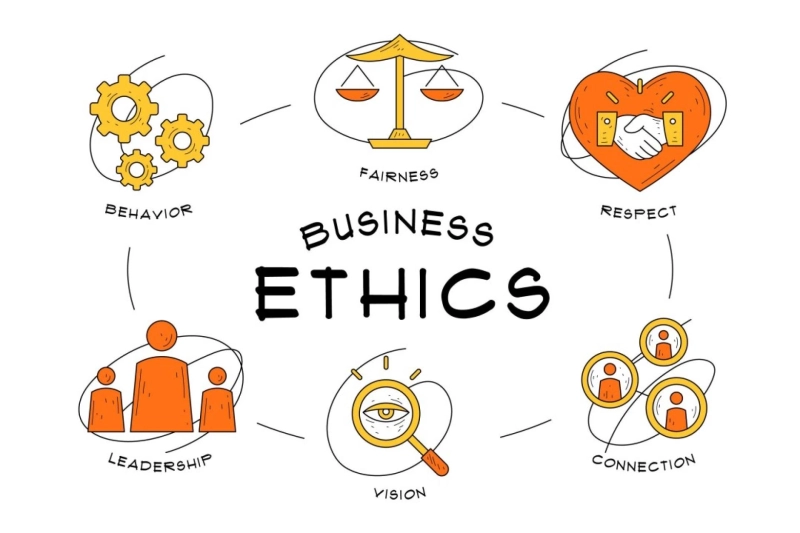Introduction:
In the realm of commerce, the role of ethical practices stands as a linchpin, steering the trajectory of businesses towards sustained success and societal well-being. The imperative for ethical conduct isn't merely a choice but an intrinsic necessity that shapes the very core of an organization. This article embarks on a journey to unravel the significance of ethical practices in business operations and why they stand as an indispensable factor in today's dynamic market landscape.
The Foundation of Ethical Business Conduct:
Ethical conduct within businesses forms the bedrock for sustained growth and long-term viability. It engenders trust among stakeholders, fostering enduring relationships and solidifying brand reputation. Every decision, action, and interaction within an organization carries the weight of ethical responsibility. Active engagement with ethical principles not only elevates the brand but also cultivates a culture of integrity, resonating both internally and externally.
Navigating Challenges with Ethical Navigation:
Amidst the complexities of modern business landscapes, ethical practices act as the compass guiding leaders through intricate dilemmas. Whether it's in the face of fierce competition, rapid technological advancements, or volatile market conditions, ethical conduct serves as a beacon, illuminating the path toward principled decision-making. Active transparency, honesty, and accountability form the core tenets that fortify businesses in times of uncertainty.
Fostering Stakeholder Trust and Value Creation:
The active embrace of ethical practices nurtures a robust foundation of trust among stakeholders. Customers, employees, investors, and the community at large perceive businesses that prioritize ethical conduct as reliable partners. This trust leads to enhanced brand loyalty, increased employee morale, and a supportive ecosystem conducive to innovation and growth. Ethical businesses aren't just profit-driven entities; they actively contribute to societal well-being, creating a positive impact beyond their bottom line.
FAQs:
Q1: Why are ethical practices crucial in business?
A1: Ethical practices build trust, enhance brand reputation, and foster long-term relationships with stakeholders, thereby ensuring sustained success and societal contribution.
Q2: How do ethical practices impact company culture?
A2: Ethical practices shape a culture of integrity, accountability, and transparency, empowering employees and fostering a positive work environment.
Q3: Can ethical conduct positively impact financial performance?
A3: Yes, ethical conduct enhances brand loyalty, customer trust, and investor confidence, ultimately influencing financial performance positively.
Q4: What challenges do businesses face in maintaining ethical practices?
A4: Balancing profitability with ethical considerations, handling complex dilemmas, and ensuring adherence across all levels pose significant challenges.
Q5: How can businesses ensure active compliance with ethical standards?
A5: Establishing clear ethical guidelines, providing ongoing training, fostering a culture that prioritizes ethical behavior, and implementing robust monitoring mechanisms are key steps.
Conclusion:
The bedrock of successful and sustainable business operations lies in the active embrace of ethical practices. Beyond mere compliance, ethical conduct forms the crux that defines an organization's reputation, trustworthiness, and long-term viability. By integrating ethical values into the fabric of their operations, businesses not only ensure their own success but also contribute meaningfully to the broader societal welfare. Ethical conduct isn't a choice; it's an essential element that defines the character and endurance of modern businesses.


